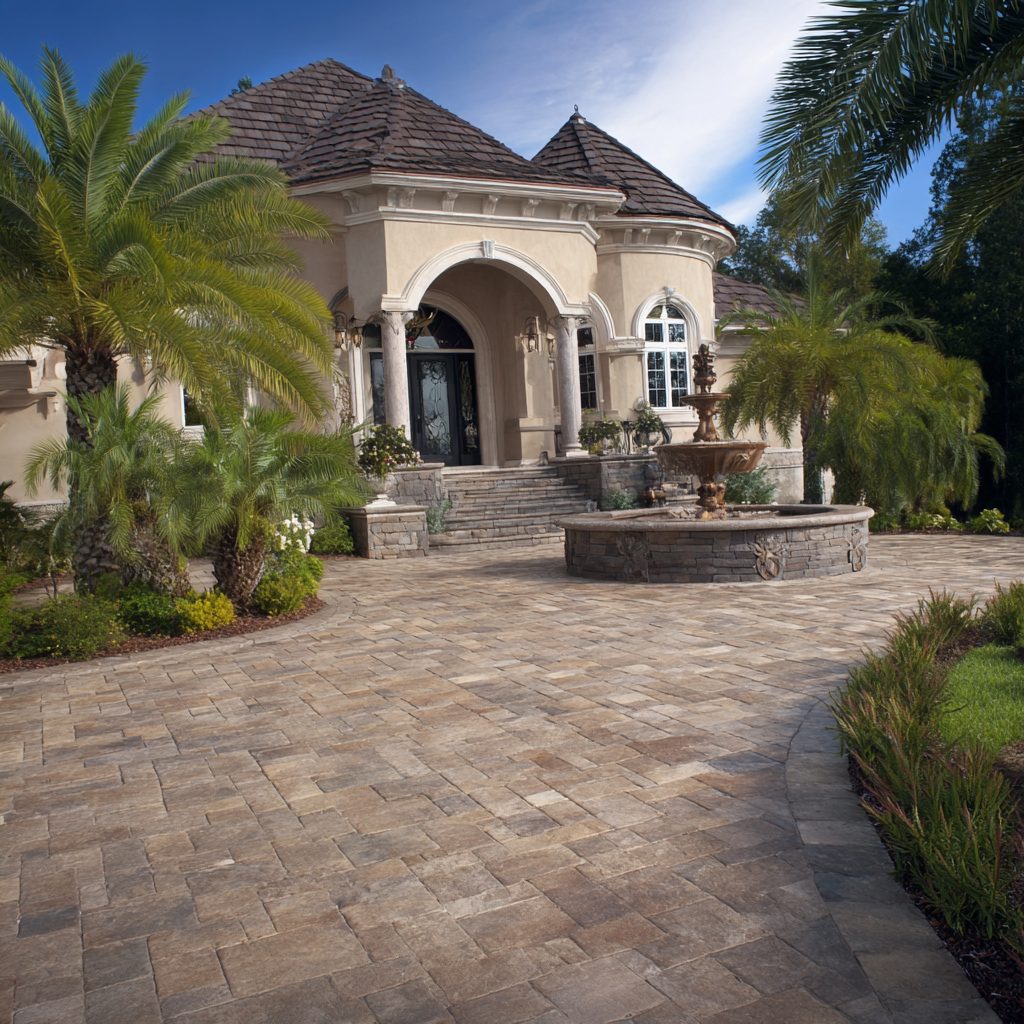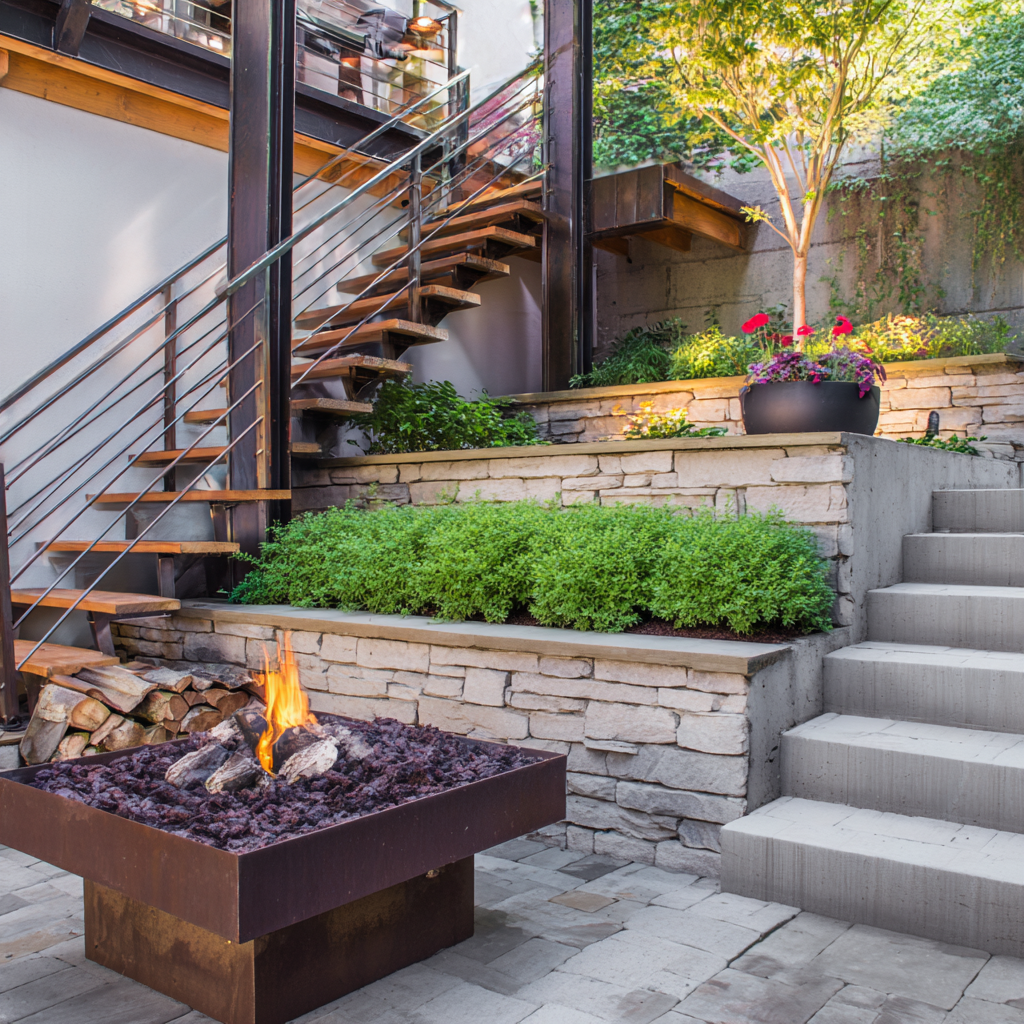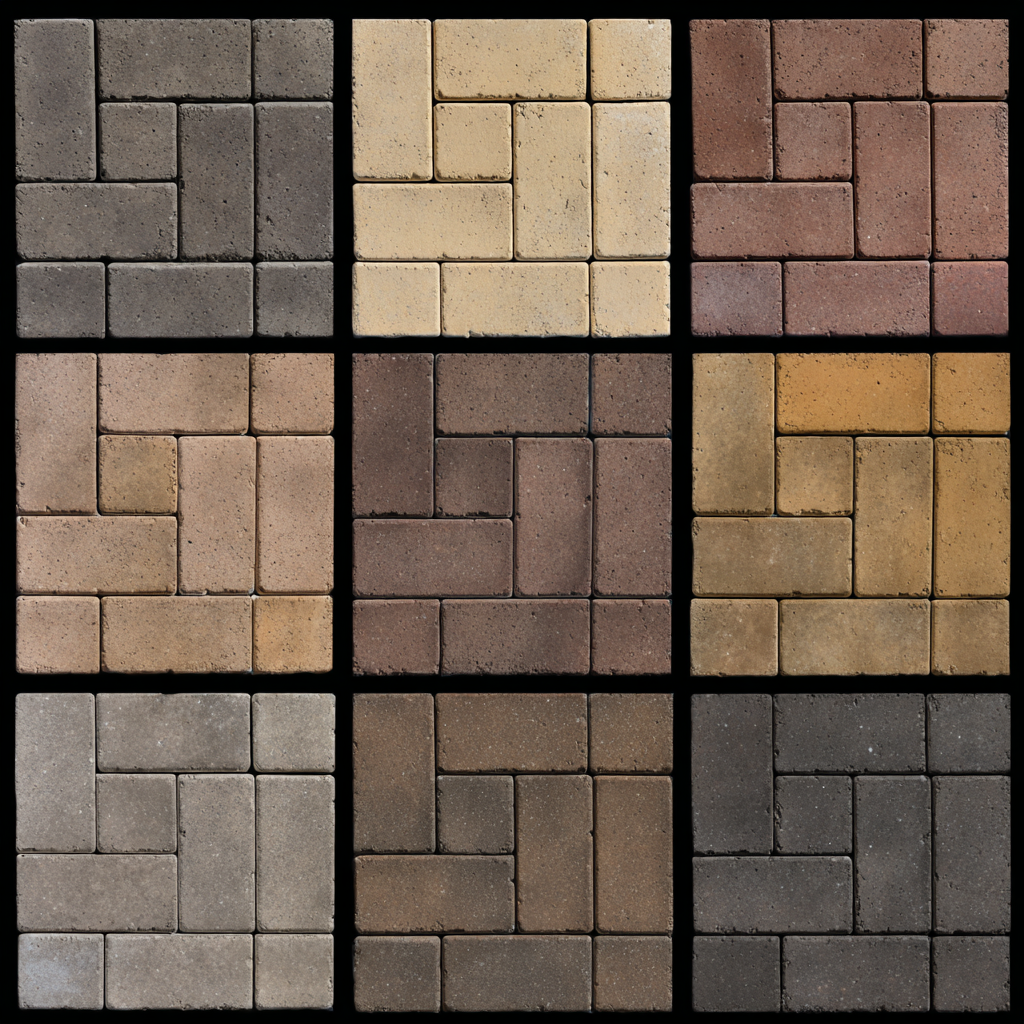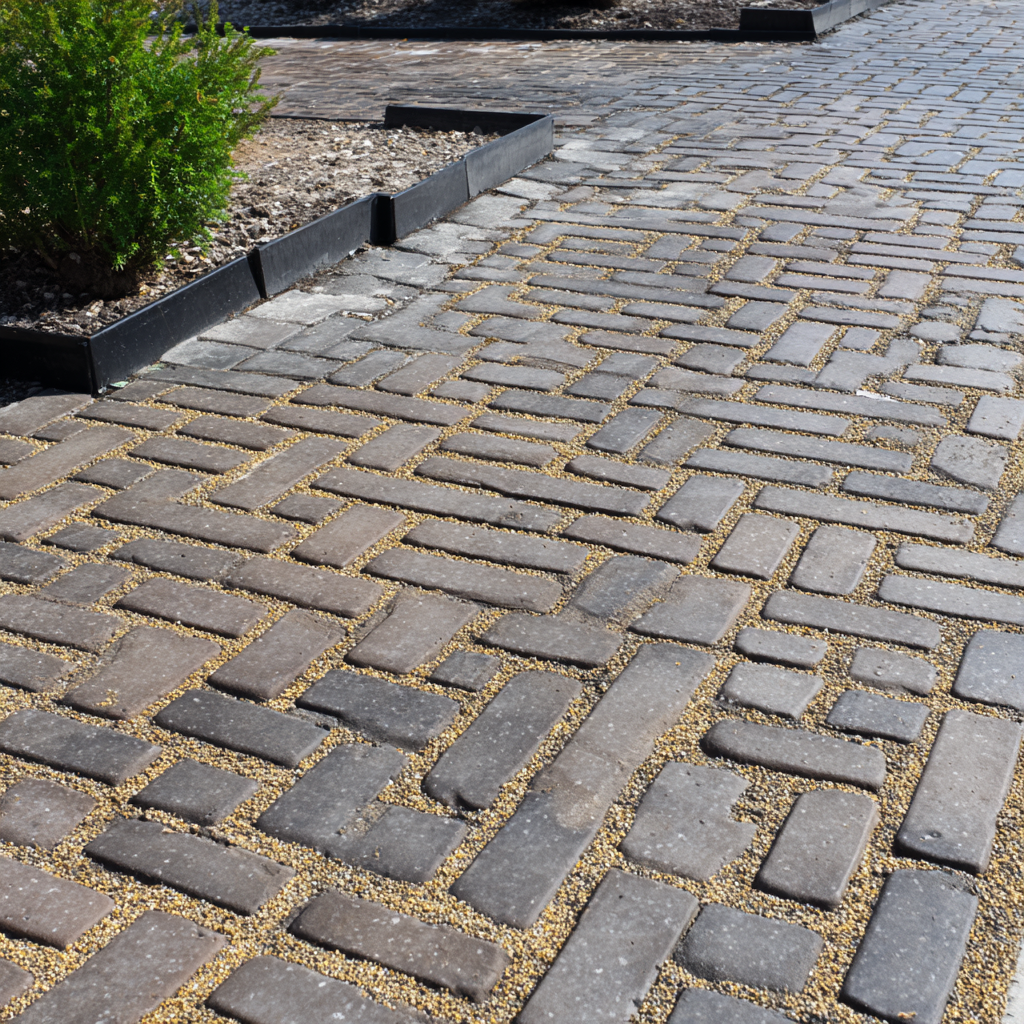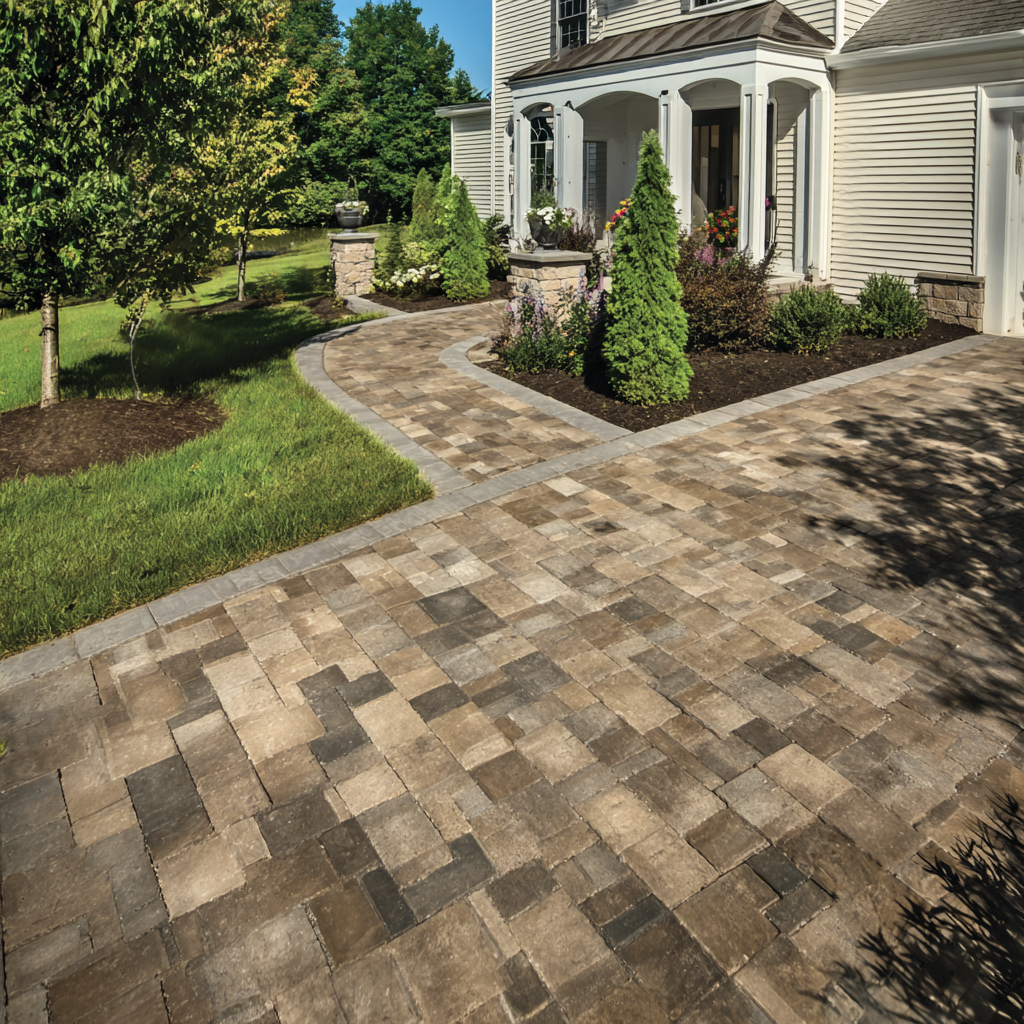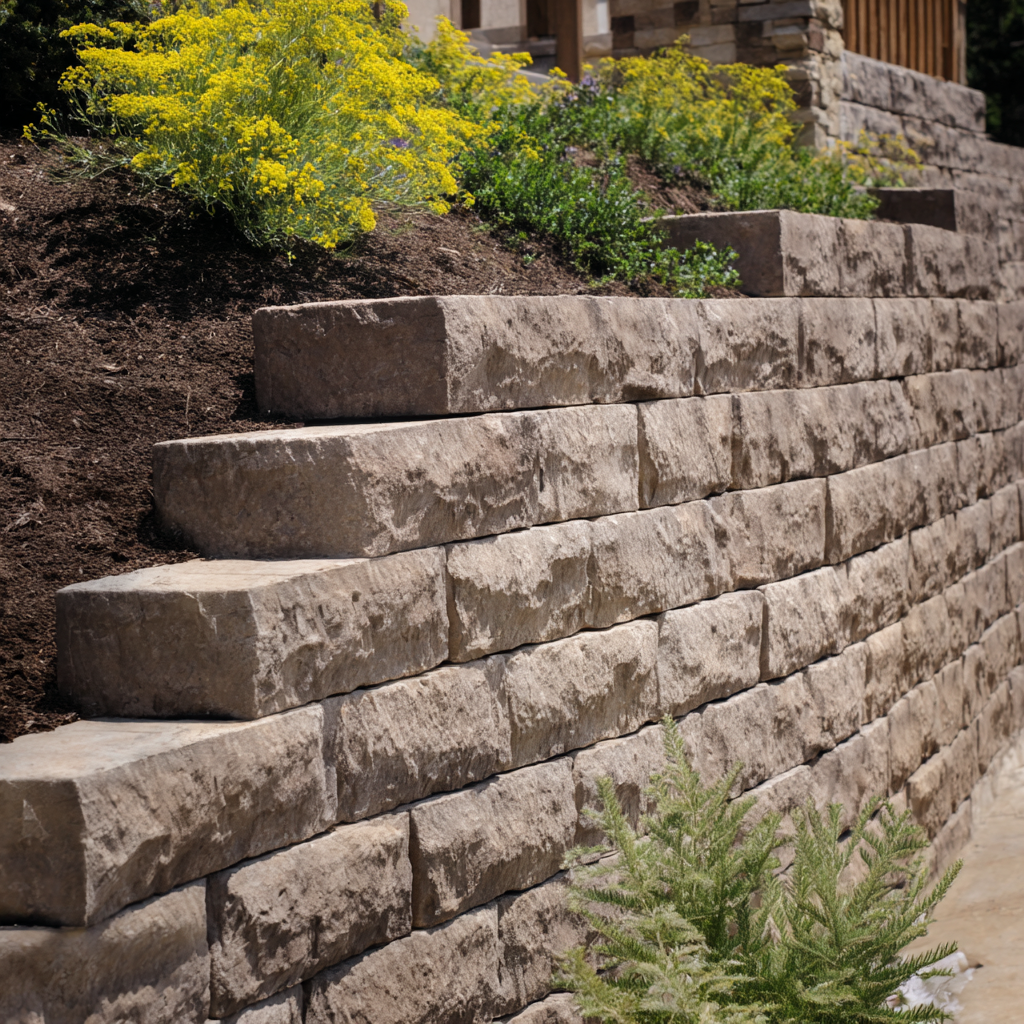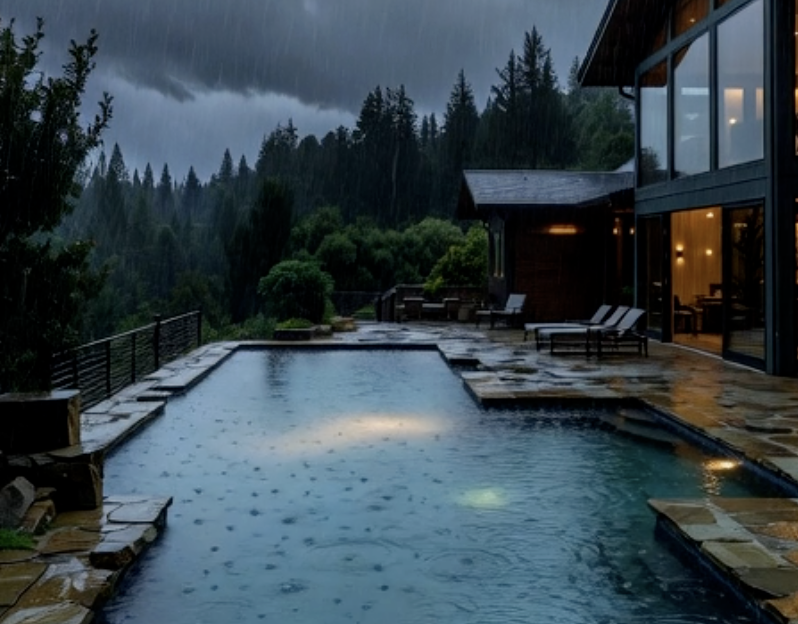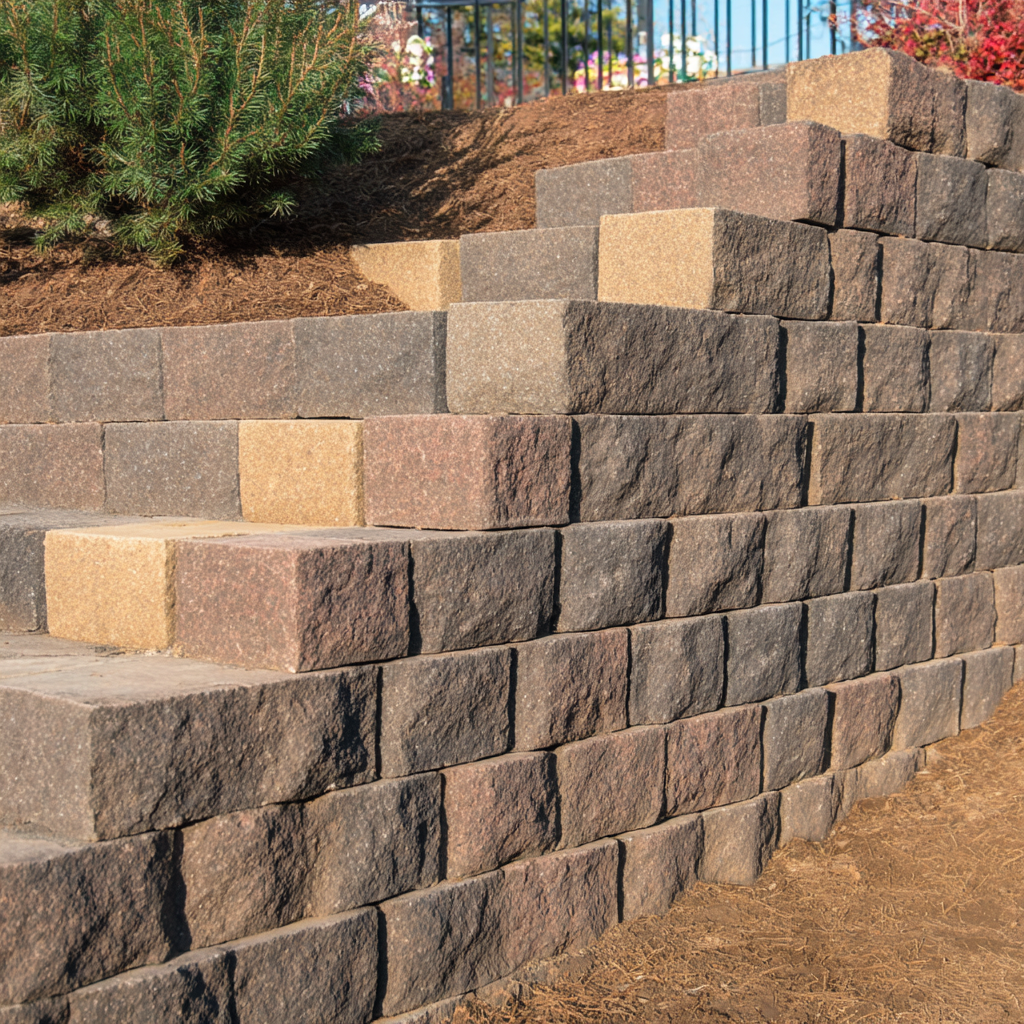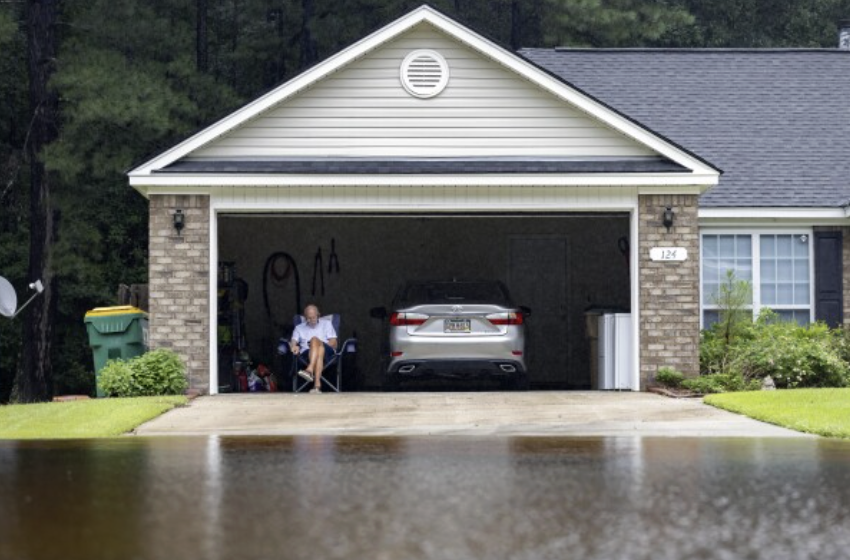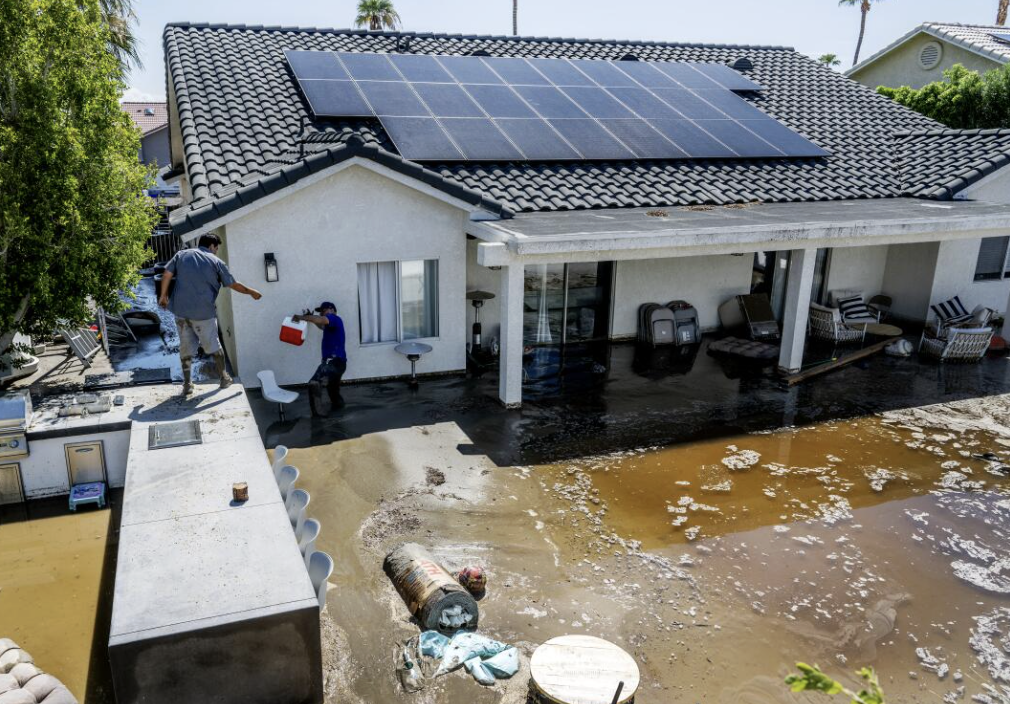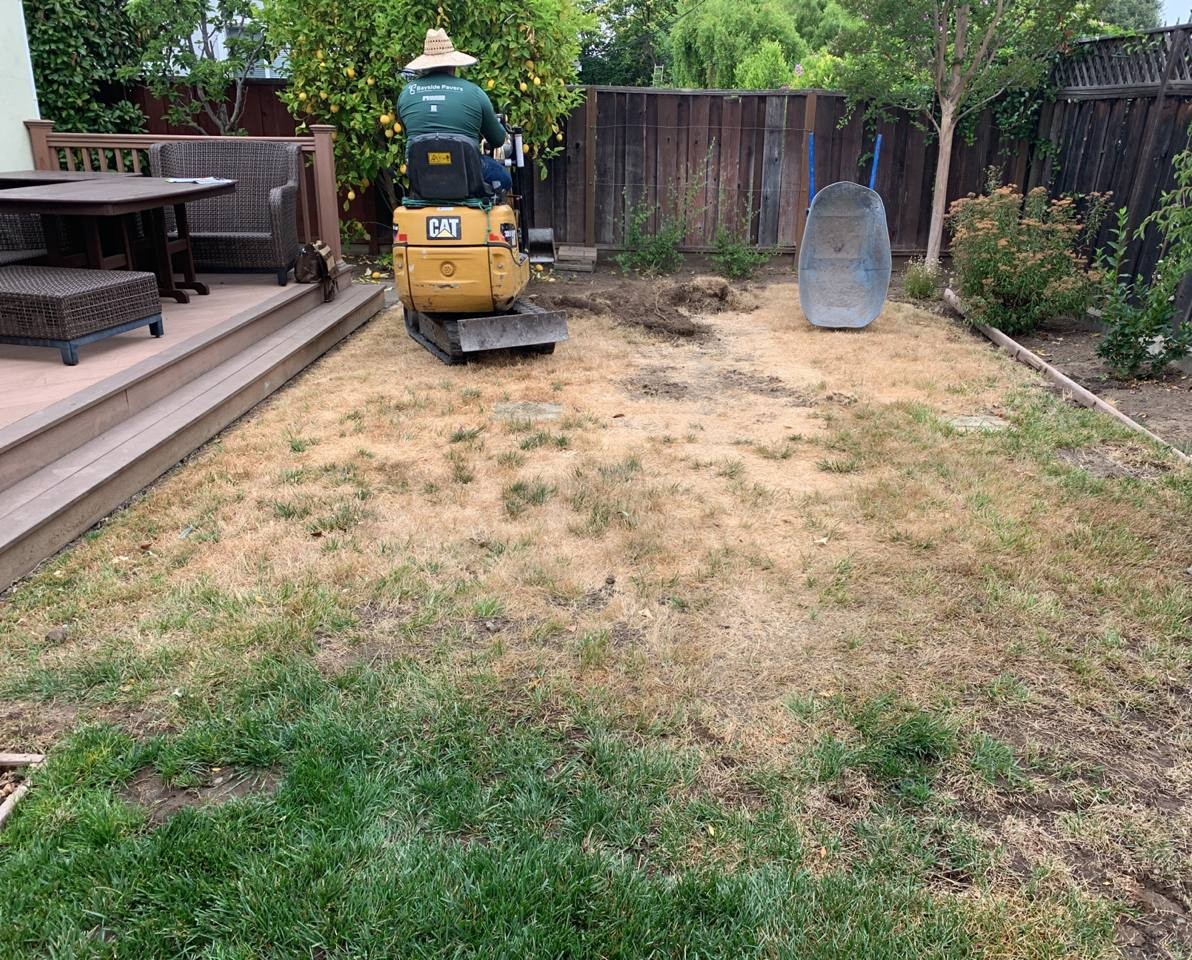
Imagine hosting a summer BBQ on your Mountain View patio, with friends laughing and kids playing, all on a surface that stays rock-solid year after year. No sinking, no cracks—just a patio that’s built to last. I had a friend in Mountain View whose patio started wobbling after a rainy winter, turning their backyard dreams into a headache. A quick call to Bayside Pavers, and we gave them a stable, stunning patio that’s now the star of their Silicon Valley gatherings.
The secret to a perfect paver patio lies beneath the surface: a strong, well-prepared base. In this guide, we’ll dive into why base prep is crucial, walk you through the step-by-step process, share a Mountain View success story, and highlight common mistakes to avoid—all backed by UCPRC’s durability standards. Plus, we’ll answer your top questions about patio stability. Ready to build a patio that stands the test of time? Let’s get started!
Why Base Prep Is Essential
Think of base preparation as the foundation of a house—if it’s not solid, everything else wobbles. A properly prepared base ensures your patio stays level, durable, and beautiful, even in Mountain View’s challenging climate. The University of California Pavement Research Center (UCPRC) recommends a 6–8-inch gravel base for paver patios to achieve stability and longevity. Here’s why it’s a game-changer:
- Prevents Settling: A compacted gravel base distributes weight evenly, preventing pavers from sinking or shifting.
- Handles Weather: Mountain View’s rainy winters and clay soils can erode weak bases. A strong base resists water damage and soil movement.
- Supports Heavy Loads: With a compressive strength of 8,000 psi, a proper base handles furniture, BBQs, or foot traffic, per UCPRC.
- Extends Lifespan: A well-prepared base ensures your patio lasts 30–50 years, saving you from costly repairs.
At Bayside Pavers, we obsess over base prep to give your patio a rock-solid foundation. Let’s break down how we do it!
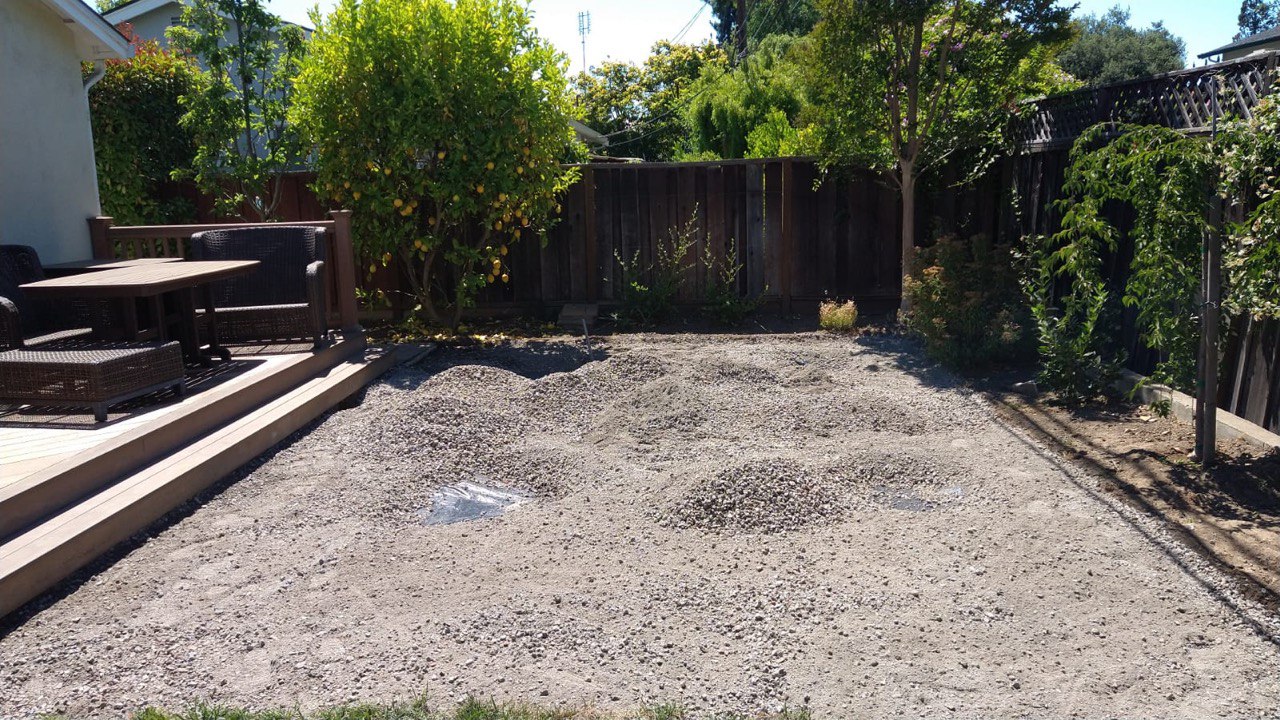
Step-by-Step Guide: Building a Stable Base
Creating a perfect patio base is like baking a cake—every layer matters, and precision is key. Here’s how Bayside Pavers builds a stable foundation for your Mountain View patio, following UCPRC guidelines:
Step 1: Site Assessment We visit your backyard to evaluate soil type, drainage, and patio size, ensuring the base suits Mountain View’s clay-heavy conditions.
Step 2: Excavation We dig 8–10 inches deep (10–12 inches for permeable pavers) to remove grass, roots, and loose soil, creating a clean slate.
Step 3: Geotextile Fabric We lay a permeable geotextile fabric over the soil to stabilize it and prevent weeds, ensuring water can still drain through.
Step 4: Gravel Base We add 6–8 inches of crushed gravel (3/4-inch aggregate), applied in 2-inch layers. Each layer is compacted with a plate compactor to achieve a rock-solid base that supports 8,000 psi, per UCPRC.
Step 5: Bedding Layer A 1-inch layer of coarse sand is screeded smooth over the gravel, creating a level bed for your Techo-Bloc pavers.
Step 6: Paver Installation We lay Techo-Bloc pavers (like Blu 60 or Mika) in your chosen pattern, ensuring a 1–2% slope for drainage.
Step 7: Finishing Touches We sweep polymeric sand into joints to lock pavers and prevent weeds, then compact the surface for a polished, stable finish.
This process ensures your patio stays level and strong for decades.
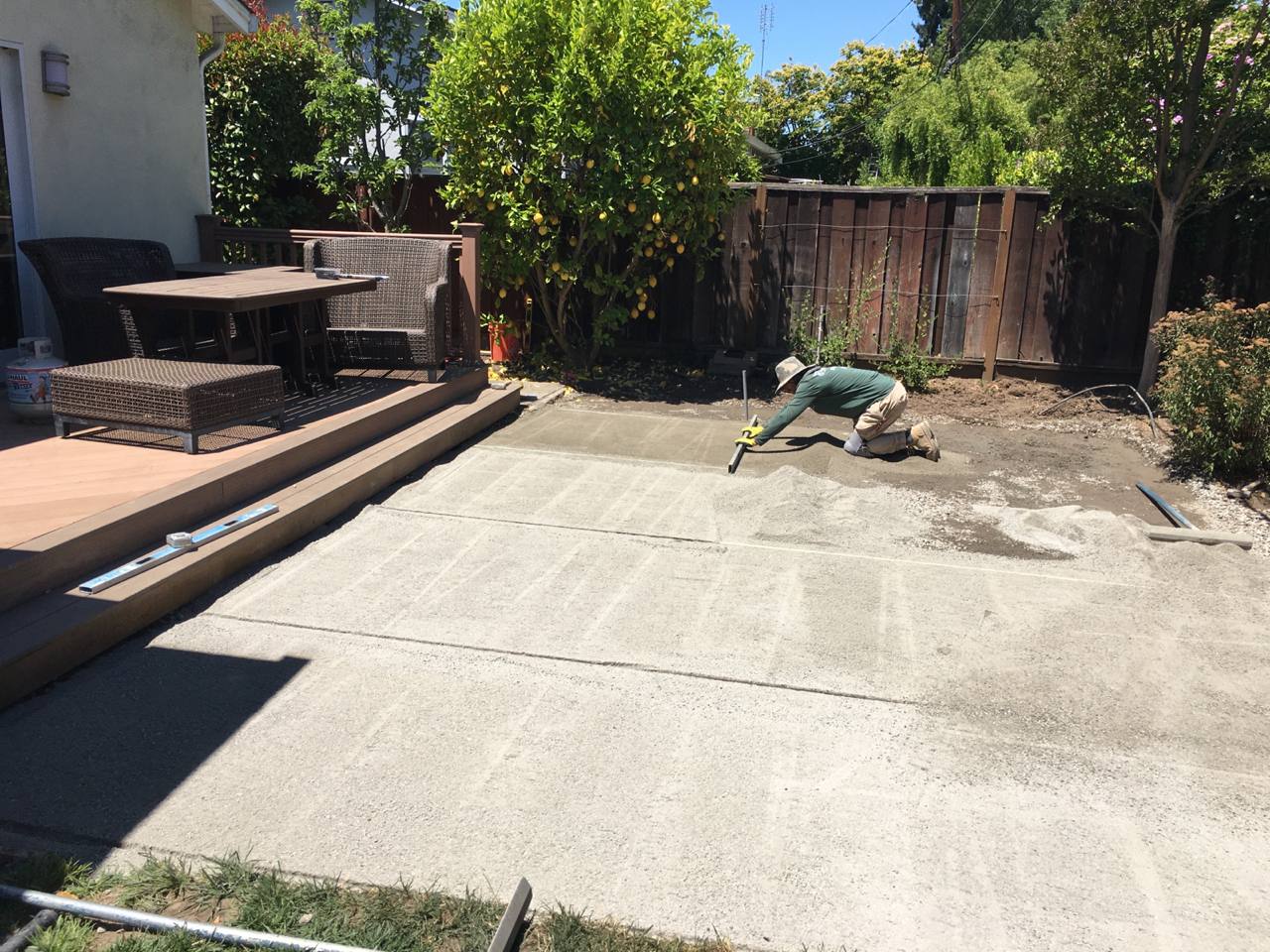
Mountain View Soil Considerations
Mountain View’s unique soil and climate demand careful base prep to keep your patio stable. Here’s how we tackle local challenges:
- Clay Soil: Mountain View’s clay-heavy soil expands when wet and contracts when dry, causing shifting. We excavate deeper (8–10 inches) and use geotextile fabric to stabilize the base.
- Rainy Winters: With 15–20 inches of annual rainfall, pooling can erode weak bases. We design a 1–2% slope, per UCPRC, to direct water away.
- Mild Climate: Mountain View’s moderate temperatures (40–80°F) minimize freeze-thaw issues, but a solid base still prevents settling from rain or foot traffic.
- Urban Regulations: Mountain View may require permits for patios over 500 sq ft or those impacting drainage. We handle all paperwork for compliance.
- Tech-Savvy Vibe: Mountain View’s Silicon Valley aesthetic calls for sleek, durable designs. Techo-Bloc pavers on a strong base deliver both style and stability.
These strategies ensure your patio thrives in Mountain View’s conditions.
Common Mistakes to Avoid
A solid base is critical, but mistakes can compromise your patio’s stability. Here are pitfalls we avoid at Bayside Pavers:
- Skimping on Depth: Using less than 6–8 inches of gravel leads to settling, especially in Mountain View’s clay soil.
- Poor Compaction: Skipping or rushing compaction creates uneven surfaces. We compact each 2-inch gravel layer thoroughly.
- No Geotextile Fabric: Without fabric, weeds and soil movement can destabilize the base. We always include it.
- Ignoring Drainage: Flat patios trap water, causing erosion. A 1–2% slope is non-negotiable, per UCPRC.
- Using Low-Quality Materials: Cheap gravel or sand can break down. We use 3/4-inch crushed gravel for durability.
Avoiding these mistakes ensures your patio stays stable and stunning.
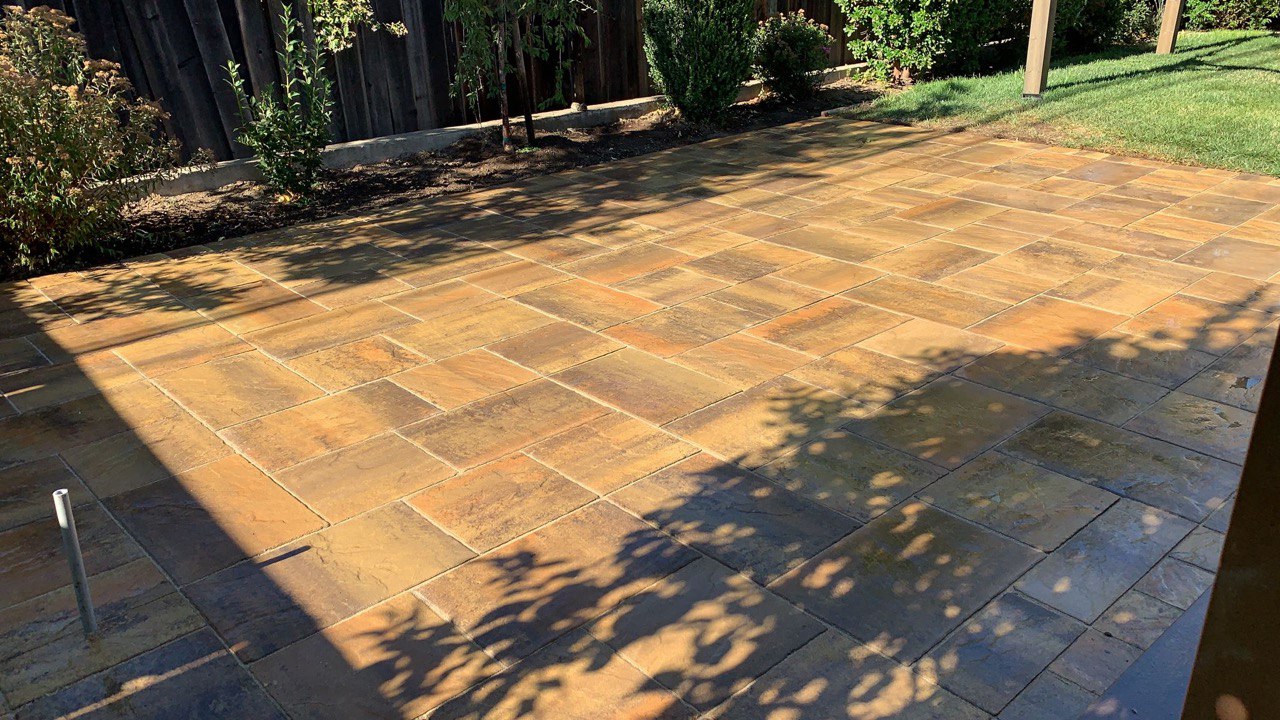
A Mountain View Success Story: The Chen Family’s Patio
Let’s talk about a real Mountain View project that nailed base prep. The Chen family had a sinking concrete patio that cracked and wobbled after heavy rains, ruining their Silicon Valley entertaining plans. They called Bayside Pavers for a stable, stylish solution.
Before: The patio was uneven, with cracks and puddles that made it unusable for BBQs or family gatherings. The weak base couldn’t handle Mountain View’s clay soil.
The Transformation: We designed a 300-square-foot patio using Techo-Bloc Blu 60 pavers in a running bond pattern. We excavated 10 inches deep, laid geotextile fabric, and added an 8-inch gravel base, compacted in 2-inch layers. A 1-inch sand layer and polymeric sand joints ensured stability, with a 1–2% slope for drainage.
After: The Chen patio is now a rock-solid, stylish oasis, perfect for tech meetups and family dinners. It’s stayed level through two rainy seasons, and the sleek design fits Mountain View’s vibe. “We finally have a patio we trust!” they said.
Maintenance for a Stable Patio
A well-prepared base minimizes maintenance, but a little care keeps your patio solid. Here’s how to maintain your Mountain View patio:
- Sweep Regularly: Clear debris weekly to prevent joint erosion, especially in rainy seasons.
- Rinse Annually: Use a low-pressure washer (1,500–2,000 psi) to clean pavers and joints, maintaining stability.
- Check Joints: Inspect polymeric sand every 5–10 years, per UCPRC, and reapply if thinning to prevent shifting.
- Address Settling Early: If you notice uneven spots, call us to fix individual pavers without redoing the patio.
- Seal for Protection: Apply a breathable sealant every 2–3 years to enhance color and protect joints.
These steps keep your patio stable and beautiful for decades.
FAQs: Your Patio Stability Questions Answered
Got questions about patio stability? We’ve got answers!
Why does base prep matter for stability? A 6–8-inch gravel base, per UCPRC, distributes weight and prevents settling, keeping your patio level for 30–50 years.
What happens if the base isn’t compacted properly? Uneven compaction leads to sinking or shifting pavers. We compact each layer to ensure rock-solid stability.
Can clay soil affect my patio? Yes, Mountain View’s clay soil can shift, but geotextile fabric and a thick gravel base prevent issues.
How do I know if my patio is stable? A level surface with no wobbling or cracks indicates a solid base. Call +1 (866) 225-3512 for an inspection!
Are Techo-Bloc pavers durable on a strong base? Absolutely! They handle 8,000 psi and last decades with proper prep, backed by a lifetime warranty.
Build a Rock-Solid Patio with Bayside Pavers
Your Mountain View patio deserves a foundation that ensures stability, durability, and Silicon Valley style. With a 6–8-inch gravel base, Techo-Bloc pavers, and Bayside Pavers’ expertise, we’ll create a patio that stays level and stunning for decades, backed by UCPRC’s standards. Whether it’s a cozy retreat or a grand entertaining space, we’ve got you covered.
Questions about patio prep? Drop a comment or contact Bayside Pavers at +1 (866) 225-3512! Let’s make your Mountain View backyard a rock-solid masterpiece.


 Schedule Design Consultation
Schedule Design Consultation.png)
